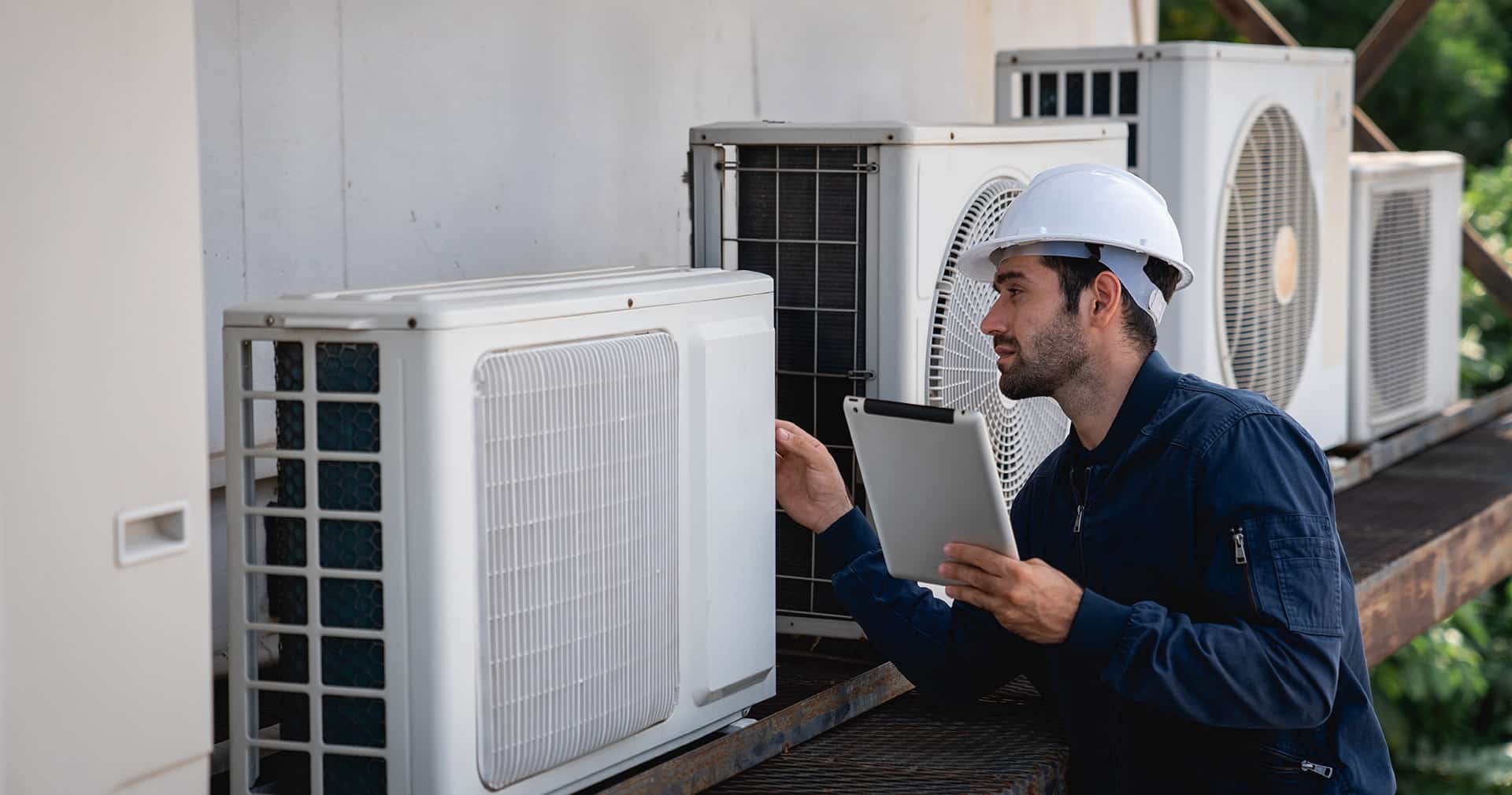
Learning how to get HVAC certified opens the door to a rewarding career. Whether fixing home air conditioners or installing large systems in a new building, you play a crucial role in making spaces comfortable and safe.
If you want to pursue an HVAC career, this is your step-by-step guide.
You’ll discover why it’s essential to research the HVAC field. Then, we’ll look at the different educational paths you can take and what certifications you need.
We’ll also explore the differences between working for yourself or with a business. Finally, we’ll give you a quick and easy list of the first steps.
By the end, you’ll have the insight to make an informed decision about your future. A new career is waiting, so let’s get started.
Research the HVAC Industry
HVAC stands for heating, ventilation, and air conditioning. HVAC technicians work on systems that control building temperature and air quality. They might install and repair HVAC systems in homes, schools, factories, and other places.
Starting an HVAC career may be a smart financial move. Over the past five years, the industry has seen a steady growth rate of 1% annually. It reached an estimated $126.4 billion in 2023.
The market size is forecasted to continue growing, which could mean a bright future with job security.
But before you jump in, it’s a wise idea to familiarize yourself with your options. This can help you choose the right area to specialize in. It also sets your expectations for working conditions and competition.
Let’s look at the different types of HVAC specializations:
- Residential HVAC technicians install and fix heating and cooling systems in people’s homes. They operate on furnaces, air conditioners, and other heating and cooling systems.
- Commercial HVAC technicians work on larger systems in office buildings or schools. They manage complex systems that control the environment in more expansive spaces.
- HVAC/R technicians specialize in heating, cooling, and refrigeration. They install and repair refrigerators and freezers alongside heating and cooling services.
- Industrial HVAC technicians deal with systems in manufacturing plants and industrial settings. They install, maintain, and repair heavy-duty systems.
Each of these roles requires specific skills. Spend some time reading about them and finding one that aligns with your interests and goals.
Consider where you might find the best job prospects, both now and in the years to come.
FROM ONE OF OUR PARTNERS: What Is a Specialty Contractor?
Educational Requirements to Become an HVAC Technician
There are different requirements for different levels of professional HVAC technicians. Before we talk specifics, here’s a quick overview:
- An HVAC apprentice learns the trade through a supervised training program.
- An HVAC journeyman has finished their apprenticeship. They have earned a journeyman-level license. This technician can work independently but isn’t a licensed contractor.
- An HVAC contractor (or HVAC master) has a contractor-level license and can manage larger HVAC projects. They can hire other technicians and secure permits.
Reaching these HVAC licensing levels involves both learning in school and working hands-on.
Let’s break it down step by step.
Step 1: Earn a High School Diploma or GED
The first step is to get a high school diploma or GED.
In some places, you can start helping a licensed HVAC contractor without one. However, having a diploma usually makes you stand out during the hiring process.
Step 2: Take Part in Certificate Programs
You can join a formal education program at a school that offers HVAC training. These programs teach you the basics you need to know for the job.
They also help you prepare for important tests like the EPA Section 608 exam. This test is essential if you want to work with refrigerants.
Most of these programs take one to two years. They include some practical work experience under supervision. This helps you apply what you learn in class to real-life situations.
Step 3: Do an Apprenticeship
Apprenticeships are job training programs. You learn by working under an experienced technician. These programs last about four years and mix job training with class time.
Step 4: Engage in Continuing Education
After you start your career, you can take more classes to learn new things and keep up with innovations in HVAC.
Some classes are available online. This can save you money and allow you to learn at your own pace.
However, online classes might not allow you to practice in real situations or get advice from teachers in person. It depends on your goals and preferences.
When picking a program, consider whether it will help you land a desired job.

Licensing and Certificates for Certified HVAC Technicians
There is no federal licensing requirement to work in the HVAC industry. But different states and cities have rules. Here’s what you need to know.
RELATED ARTICLE: Digging Into HVAC Technician Training with ForgeNow
HVAC Licenses
You need a license to work as an HVAC technician in most areas. The rules for getting a license are different depending on where you live.
It is usually best to show that you have worked under another licensed technician for a certain amount of time. You also need to have insurance and pass a test.
For example, you need four years of experience in Texas to get a license. However, in South Dakota, you might not need a state license, though some cities require it.
HVAC Certifications
In addition to state licensing, you might need a certification. Again, this depends on where you work and what you decide to specialize in.
For example, all HVAC technicians who handle refrigerants must pass the EPA Section 608 certification. This is a federal requirement. It aims to prevent the release of harmful substances into the atmosphere.
To get certified, you need to pass an EPA-approved exam. The test will cover the handling and management of refrigerants.
HVAC Specializations
Once you have your license, you should get more certifications. These can help you target a niche.
For example, you might learn more about specific types of industrial systems. Or you might become an expert in energy-saving technology.
You will need to invest time into taking classes and passing tests. But the outcome may be worth it. When you specialize, there may be a higher demand for your services.
This can set you up for long-term success—especially if you plan to start your own business.
FROM ONE OF OUR PARTNERS: Commercial HVAC Services vs Residential HVAC Services
Always Check Local Requirements
Since every state has different rules for HVAC technicians, check what you need to do in your area. Do this early on in your career.
That way, you will avoid any licensing issues later on. You can plan your career progression and tick all the boxes.

Self-Employed vs. Working for a Business
You know how to get HVAC certified. Now, the question becomes: what will you do when you get there?
Will you start your own HVAC business? Or will you get a job with an existing one?
Both options have pros and cons, and the right choice depends on your goals and expectations. Let’s compare and contrast the two.
Career Advancement Opportunities
- Self-employed: As your own boss, you can expand your business as you see fit. Growth depends on your ability to manage and market your services.
- Working for a business: A company provides more structured advancement paths. Based on performance and experience, you can move up from a technician to a supervisory role or into management.
Potential Earnings
- Self-employed: Earnings can vary widely. You can earn more since you keep all profits after expenses. But your income might fluctuate more than if you were working for someone else.
- someone else.
- Working for a business: Typically, you earn a steady wage. You might also receive health insurance, vacations, and retirement plans.
Logistical Considerations
- Self-employed: You must handle all business logistics, from finding clients and buying equipment to managing finances. This can be rewarding but also time-consuming.
- Working for a business: The company handles most logistical concerns. That means you can spend more time on your clients and the HVAC work.
Lifestyle
- Self-employed: Running your own business offers flexibility. But it can also demand more time, especially in the early days.
- Working for a business: An employer generally offers a more predictable work schedule. This might make it easier to balance work and personal life.
RELATED ARTICLE: HVAC Business Management 101: 9 Key Concepts
First Steps to Become a Certified HVAC Technician
- Check local requirements. Contact your state’s licensing board to find out the specific licensing and certification requirements in your area.
- Think about your interests. Decide which area of HVAC interests you most. This might be residential, commercial, or refrigeration. That way, you can focus your training.
- Explore education programs. Look into accredited HVAC training programs near you. Consider the delivery method (online or in-person), the cost, and the time demands.
- Look for apprenticeships. Check for available apprenticeship opportunities through local trade organizations or HVAC businesses. If one stands out, why not apply?
Related Posts
Stay Informed
Get the latest news and insights plus, Service Fusion offers and updates.Thank you for your submission.
SHARE